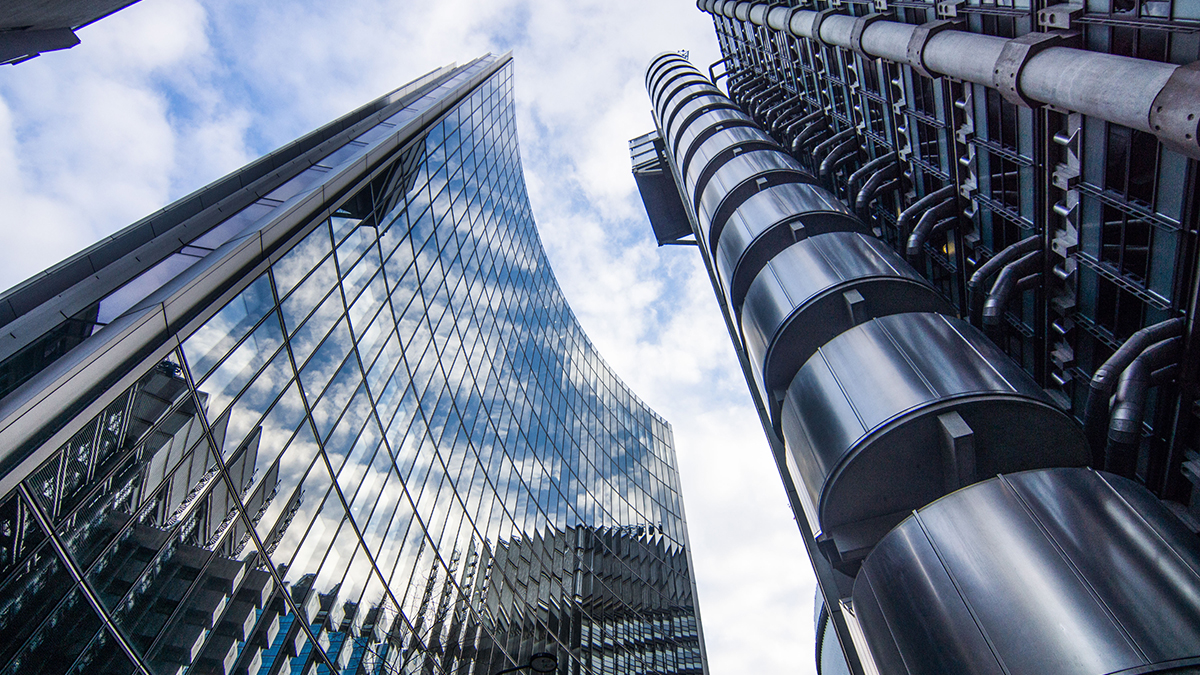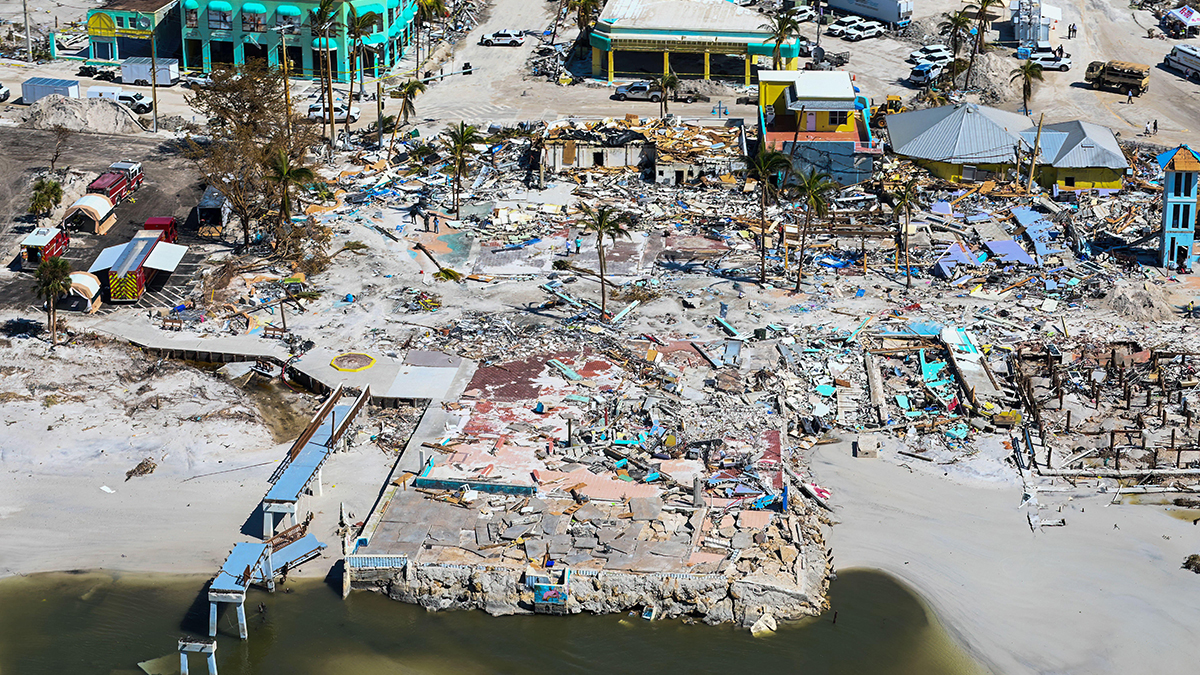Ariel Re bullish on property catastrophe after capital injection
New capital found Bermuda carrier’s prospects ‘very appealing’
The Bermuda-based carrier is adhering to its investor mandate of ‘strict, discerning and vigilant’ underwriting of risk, says Joel Willens, head of international property reinsurance
Ariel Re’s recent capital injection of $270m has put the Bermuda-based re/insurer in a strong position to remain bullish in property catastrophe, according to Joel Willens, its head of international property reinsurance.
The funding, which came from five new institutional and family office investors, includes $170m raised through Lloyd’s institutional investor vehicle London Bridge 2 PCC, making Ariel Re the first sponsor to raise capital through the structure. In addition, existing backers Pelican Ventures and JC Flowers & Co have also “meaningfully increased” their underwriting capital commitment.
Speaking to Insurance Day, Willens says the private equity investors had picked up on the “buzz” around Ariel Re towards the end of last year.
“There was certainly momentum that had built up late in 2022 about Ariel’s property catastrophe prospects into 2023. Our cornerstone investors increased their participation and new capital also found our story and our prospects to be very appealing,” Willens says.
“It boosted our confidence, but we were always going to be selective at 1/1 and beyond. We’re not going to dilute what we do, to write premium for premium sake,” he adds.
Ariel Re was founded in Bermuda at the end of 2005 and has had a few different owners since then. The last change was when it left Argo Group and was bought by Pelican Ventures and JC Flowers in November 2020. With offices in Bermuda, Hong Kong and London, Ariel Re carries risk almost exclusively via Lloyd’s in syndicate 1910 in five lines of business: property catastrophe, cyber, marine and specialty, professional lines and clean energy.
Discerning underwriting
Ariel Re is not going to be “everything for everyone”, Willens stresses. “We’re sticking to our knitting, which is adhering to our investor mandate of strict, discerning and vigilant underwriting of risk in five product lines and in specific geographies.”
Clarity of coverage is more relevant today than ever and at the January 1 renewal this was more important than rate, he says.
“In property retro, the coverage went almost entirely to named natural perils and they’re clearly identified in line one of contracts, so there’s no ambiguity, there’s no opportunity for opacity of coverage.
“We know we’re selling European windstorm, European flood, European earthquake, period, full stop. We’re not providing the potential for coverage for war or terror or strikes or communicable disease. Those types of coverage have historically eaten their way into property reinsurance and property retro. If I had to put a number on it then 99% of Ariel’s retrocessional property is now on a named natural perils basis only,” he says.
When a deal met its new, stricter thresholds, Ariel was “willing and able” to execute larger trades than it had ever done in its 17-year history, Willens says.
On the occasions when buyers insisted on broader coverage in international property reinsurance, Ariel either offered solutions or was prepared to walk away.
“We have fewer clients than we did 90 days ago, but we have stronger relationships now,” Willens says. “That was a byproduct of open, clear and early communication, which we began in late October, early November, and establishing parameters on risk meant we could make very material commitments to our trading partners.”
If Ariel did make a concession at January 1, it was more likely to have been “the last few percentage points of dollars spent” than on the terms and conditions within a contract. The company’s “dream outcome” on price was less important than its discipline on terms and conditions, Willens says.
Ariel increased its attachment points “substantially” and it will continue to scrutinise this feature of contracts throughout 2023, he adds.
“We’re writing higher up in programmes to the extent that we write the key zones and peak perils and avoid the more attritional layers and secondary perils,” he says.
‘Grey swan’ events
Climate change is making extreme weather events not only more severe and frequent, but also unexpected, he says.
“In the last handful of years, we’ve seen unthinkable flooding in Pakistan, South Africa and New Zealand and more and more ‘grey swan events’, which are events that seem to be rare at first glance but actually, in aggregate, are not so rare.”
Another development seen at the January 1 renewal concerned prepaid reinstatement provisions. Although these have been a feature of reinsurance coverage in Europe for many years, Willens says, Ariel no longer felt they “align the interests” of the ceding company and reinsurer.
“The market is moving towards reinstatement provisions having buyers pay for reinstatement again following a loss,” he adds.
Ariel also found mechanisms within aggregate cover in Europe are “still akin to soft market terms”, he continues.
“We had to take a view those deals no longer suit our appetite and we’ll continue to navigate that issue throughout 2023 and maintain our discipline,” he says.
The company noticed its clients had been “very candid” about how they are managing inflation. “This has been a big topic for two years and our trading partners have come to the table armed with their sincere observations of claims inflation, materials and construction costs inflation and wage inflation. We may adjust a client’s view to some extent, but it’s fair to say inflation has been embedded in the price of our forward-looking trades,” Willens says.
There has been a steady flow of buyers and brokers to Bermuda months ahead of this year’s other renewals, Willens says, driven by concerns about the supply-demand imbalance in property and retrocession reinsurance.
“They’re making an effort to be front-and-centre in the minds of reinsurance sellers to state the merits of their various businesses,” he adds.
The “jockeying for position” between buyers and sellers in December for the January 1 renewal is being repeated for the upcoming renewals. “We’ve seen Floridian clients come to Bermuda on more than one occasion already by the second week of March, which is a demonstration buyers don’t want to leave their June 1 renewals to the last minute,” he says.
Catastrophe appetite
On prospects for growth this year, Willens says the US property catastrophe market is “certainly an area of focus” for Ariel Re.
“That where the heightened demand is,” he says, although there has been “some retreat” from other reinsurers in that space.
“There’s an awareness of the Hurricane Ian loss. If you’re a non-loss-affected insurance company in Texas but you just witnessed a peer company in Florida suffer one of the largest losses in the past three decades then it might make your insurance executive risk committee recalibrate their reinsurance needs,” Willens says.
“Ariel will be there to serve those needs and so the growth is most likely to come from the US property reinsurance space, as well as from select pockets in the international space, where the deals meet our very narrow parameters.”
The arrival of capital from new investors was “a proud moment”, he says, because it is testament to the “conviction” Ariel has in its underwriting.
“Reinsurance companies have not made particularly handsome returns for the past six years,” he says. “To attract new capital into Ariel Re and deliver on the assurances we’ve made to our investors, we’ve got to be really discerning in what we sell – and we are.”



